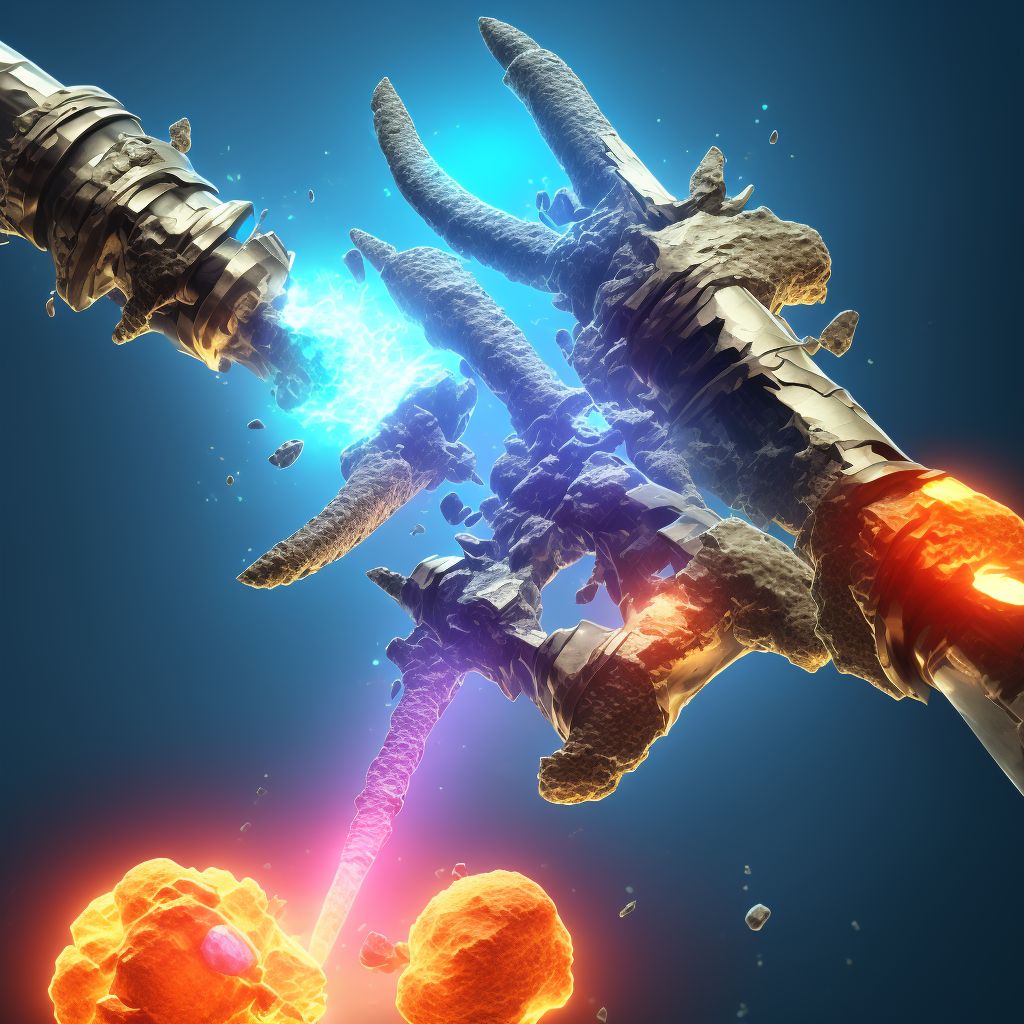
Nondisplaced comminuted fracture of shaft of left tibia, subsequent encounter for open fracture type IIIA, IIIB, or IIIC with malunion Save
ICD-10 code: S82.255R
Disease category: S82.255: Nondisplaced comminuted fracture of shaft of left tibia
Nondisplaced Comminuted Fracture of Shaft of Left Tibia: Understanding Open Fracture Types IIIA, IIIB, or IIIC with Malunion
A nondisplaced comminuted fracture of the shaft of the left tibia is a specific type of fracture that can have long-term consequences if not properly treated and managed. In some cases, this fracture can lead to an open fracture, which is further categorized into types IIIA, IIIB, or IIIC, depending on the severity of the injury. When left untreated or not adequately healed, these fractures can result in malunion, causing complications and functional limitations for the patient.
Understanding the different types of open fractures is crucial for healthcare professionals involved in the care of patients with tibial fractures. Open fractures occur when the bone breaks through the skin, increasing the risk of infection and other complications. Type III open fractures, including types IIIA, IIIB, and IIIC, represent severe injuries, often involving extensive soft tissue damage, vascular compromise, and contamination.
- Type IIIA: Type IIIA open fractures are characterized by adequate soft tissue coverage despite extensive damage, usually with a clean wound.
- Type IIIB: Type IIIB open fractures involve extensive soft tissue loss, leaving the bone exposed. These fractures often require soft tissue coverage and reconstruction to promote healing.
- Type IIIC: Type IIIC open fractures are the most severe and involve vascular injury requiring repair or reconstruction. These fractures often have significant soft tissue damage, making treatment challenging.
Malunion refers to the improper healing of a fracture, resulting in the bones not aligning correctly. In the case of a nondisplaced comminuted fracture of the shaft of the left tibia, malunion can lead to functional limitations, such as pain, deformity, and decreased range of motion in the affected leg.
It is essential to seek prompt medical attention for a nondisplaced comminuted fracture of the shaft of the left tibia to minimize the risk of an open fracture and subsequent malunion. Healthcare professionals will evaluate the severity of the fracture and determine the appropriate treatment plan, which may include surgical intervention, immobilization, and rehabilitation.
Remember, early intervention and proper management are crucial for the successful healing of fractures and reducing the risk of long-term complications.
Treatment of Nondisplaced comminuted fracture of shaft of left tibia, subsequent encounter for open fracture type IIIA, IIIB, or IIIC with malunion:
Treatment Options for Nondisplaced Comminuted Fracture of Shaft of Left Tibia, Subsequent Encounter for Open Fracture Type IIIA, IIIB, or IIIC with Malunion
When it comes to treating a nondisplaced comminuted fracture of the shaft of the left tibia, subsequent encounter for an open fracture type IIIA, IIIB, or IIIC with malunion, there are several options available. The choice of t...
To see full information about treatment please Sign up or Log in